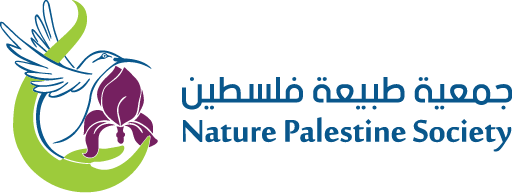October is very special in Palestine. It’s the olive harvesting season. Digging in my memory I remember my father taking us to the olive groves in our village (Taybeh), where Palestinian families gathered to pick the golden fruit. I recall the delicious light pepper-like aftertaste of the freshly pressed olive oil and the delicious foods and herbal teas infused with the aroma of olive wood fumes. My father has his own personal stories to tell, as my grandfather owned an olive press, the first semi-automated press in the district, and people from all the surrounding villages would come to extract olive oil from their freshly picked fruits. The olive season in Palestine is much more than an economic practice, it’s a palpable example of one of Palestine’s many “cultural ecosystem services.”

Photo courtesy of Middle East Eye.
Cultural ecosystem services are the intangible benefits that people gain from ecosystems through recreation, tourism, intellectual development, spiritual enrichment, reflection, and creative and aesthetic experiences. Cultural ecosystem services have positive impacts on human health and social ties, and solid cultural connections to identity. In this sense, the olive harvesting season in Palestine is an integrated socio-ecological system, extending its benefits beyond the total number of tons of harvested olives each year.
It is estimated that 10 million olive trees are cultivated in the West Bank and Gaza Strip, inhabiting more than half of the cultivated areas. Nevertheless, the cultural value of the olive agroecosystem is greater than its US$170 million market worth. The olive tree is a symbol of belonging, rootedness, and resilience against occupation, a symbol that is passed down from generation to generation. Moreover, the olive harvesting season provides Palestinians with positive vibes of tranquility, inspiration, and an opportunity to escape from everyday stress. The Palestinian historical library is rich in poetry, song, painting, pottery, and other forms of art dedicated to the olive harvesting season. Palestinian cuisine is deeply interconnected with olives and olive oil. Finally, the olive harvesting season attracts many enthusiasts and activists from around the world who desire not only to support Palestinian resilience but also to engage in a meaningful cultural activity.
The olive culture ecosystem service currently faces many challenges in Palestine, mainly due to the Israeli occupation, but also due to climate change, rapid urbanization, and pollution. The olive harvesting season is merely one example, as similar challenges emerge during the grape harvesting season, wheat mowing season, honey extraction season, etc. In addition, the concept of cultural ecosystem services is often neglected when decisions must be made concerning such issues as environmental impact assessment because it is considered to have little or no economic value. Finally, olive trees are very similar to the Palestinian people: both are deeply rooted – physically and culturally – in this land. For this reason, national and international efforts must be directed towards conserving and protecting them.
Publish Date: November 2022
Olive Harvest Season in Palestine – This Week in Palestine
